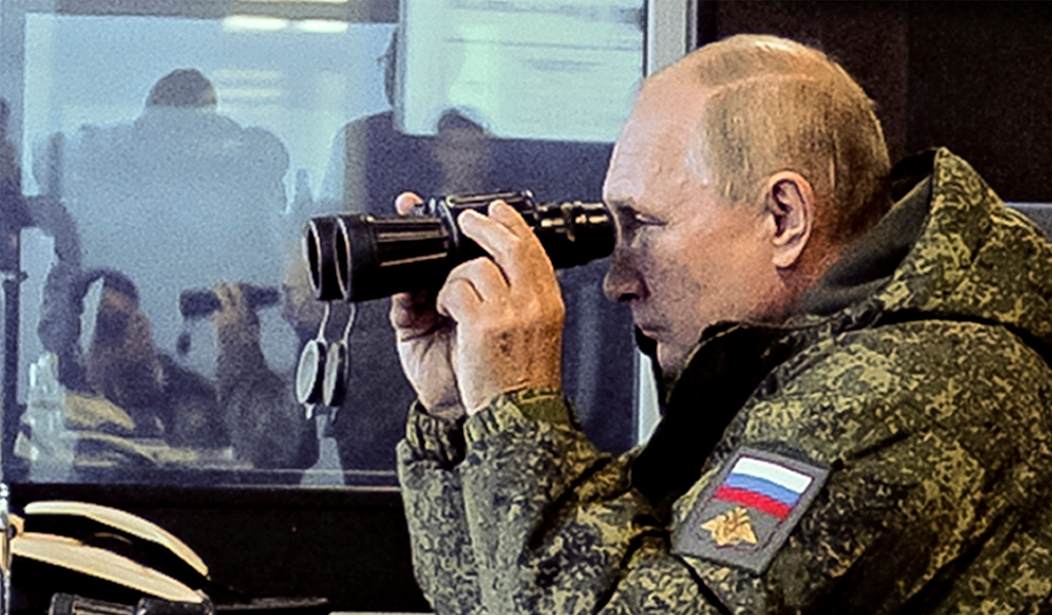In the last year and a half, since Russia invaded Ukraine, I’ve been flabbergasted at what our military and political elites haven’t been talking about. Russia and America are nose-to-nose in Eastern Europe and a situation that should elicit daily warnings of Armageddon has instead, brought a cone of silence over the possibility of nuclear war growing out of our actions in Ukraine.
Every military action taken by the United States since the 1950s has raised red flags from the left about the possibility of nuclear war. That included going to war in Southeast Asia to prevent a Communist takeover. Now we’re at war in Ukraine to prevent a Russian takeover of Ukraine and the domino theory is alive and well because we’re also supporting Ukraine to prevent a takeover of other former Communist states.
As someone who lived through the worst of the cold war, I can’t believe the sanguine attitude of many elites who seem to have forgotten how close we’ve come to nuclear war in the past. Nor can they fathom how close we are to nuclear war today.
“America is sleepwalking into nuclear war” claims Andrew Doran, who previously served on the secretary’s policy-planning staff at the U.S. State Department.
Yet the hawks seem certain of two things: that nuclear war is impossible, and that alliances prevent war. Both assumptions are wrong. It requires just a little historical knowledge and imagination to see how wrong. The smug but insubstantial Democratic politician and foreign-policy operative Tom Malinowski revealed the depths of establishment illusions in a Twitter lecture about how alliances prevent war. “In 75 years,” he wrote, “we have made a solemn commitment to go to war for 31 European and five Asian countries and have never once had to go to war to defend any of them from attack. That’s the point of alliances—by promising to fight if necessary, we make it unnecessary to fight.”
In 1962, policymakers and politicians thought nuclear war was more than possible: it was inevitable. With Soviet nuclear missiles in Cuba (thanks to JFK’s weakness in a face-to-face visit with Kruschev in Vienna just a few months previously), most of the joint chiefs and many of Kennedy’s advisors wanted to invade Cuba to get rid of Castro. We now know that such an invasion would have resulted in the missiles that were operational in Cuba being launched, resulting in a nuclear exchange of strategic missiles with Russia ending human civilization.
Perhaps an even closer call came in 1983 when a series of decisions by Russia’s paranoid leader, Yuri Adropov, led to a nuclear strike order after a false radar image convinced the Russians the U.S. was striking first. Only a courageous move by an air defense officer, Lt. Col. Stanislav Yevgrafovich Petrov, who didn’t pass on the launch order, saved the world from nuclear destruction.
It’s delusional to think that nuclear war isn’t possible. It’s even more delusional to think that alliances make nuclear war impossible.
Not only does he not understand why conventional war never occurred in Cold War Europe, he is apparently unfamiliar with the last century’s alliance debacle prior to World War I. Then, the inextricable alliance system of European powers, believed to be a deterrent to war, instead made it all but inevitable when a conflict of otherwise narrow scope between Austria and Serbia quickly became a global conflict.
NATO has never gone to war because of U.S., UK, and French nuclear weapons. Any Soviet leader since the 1950s would have been insane to go to war with a NATO country. It’s that simple, and believing the alliance was the reason there hasn’t been a war is idiotic.
NATO has now outlived its cold war purpose, but it’s still confronting a cold war enemy. The difference is there’s no existential threat to the U.S. from a Russian takeover of Ukraine.
So why are we so determined to bring Ukraine into NATO — especially since Kyiv’s joining the alliance may very well precipitate World War III?
Which brings us to Ukraine’s NATO yearnings. Proponents seem to believe that, after US-led conventional NATO forces expel Russia from occupied Ukraine, including Crimea, that Russia will accept this without resort to tactical or other nuclear weapons, and that such a demoralizing defeat could lead to a coup against Putin. This is madness. The risk of escalation is simply too high. Courageous and noble though many Ukrainians may be (Nazi brigades notwithstanding), America has no vital interest at stake in Ukraine.
Doran writes, “But there is no ultimate triumph to be had in Ukraine: It can’t and won’t be the war to redeem the other wars, the failures of Afghanistan, Iraq, Libya, and Syria. Yet this is what hawks desperately hope for.”
Also for our VIPs: Accusations Flying That Both Russia and Ukraine Are Planning to Sabotage Zaporizhzhya Nuclear Plant
Vladimir Putin has brought the current state of affairs on himself. He criminally underestimated Ukraine’s ability to resist the Russian military advance, and a war he expected to last a week or two drags on and on. But Putin believes if he holds the nuclear sword of Damocles over the heads of the Western alliance, we’ll eventually get cold feet and negotiate.
Meanwhile, the single strand of horsehair holding that sword in place is beginning to fray. It could snap at any time, making Biden and his pro-war advisors look like lunatics.










